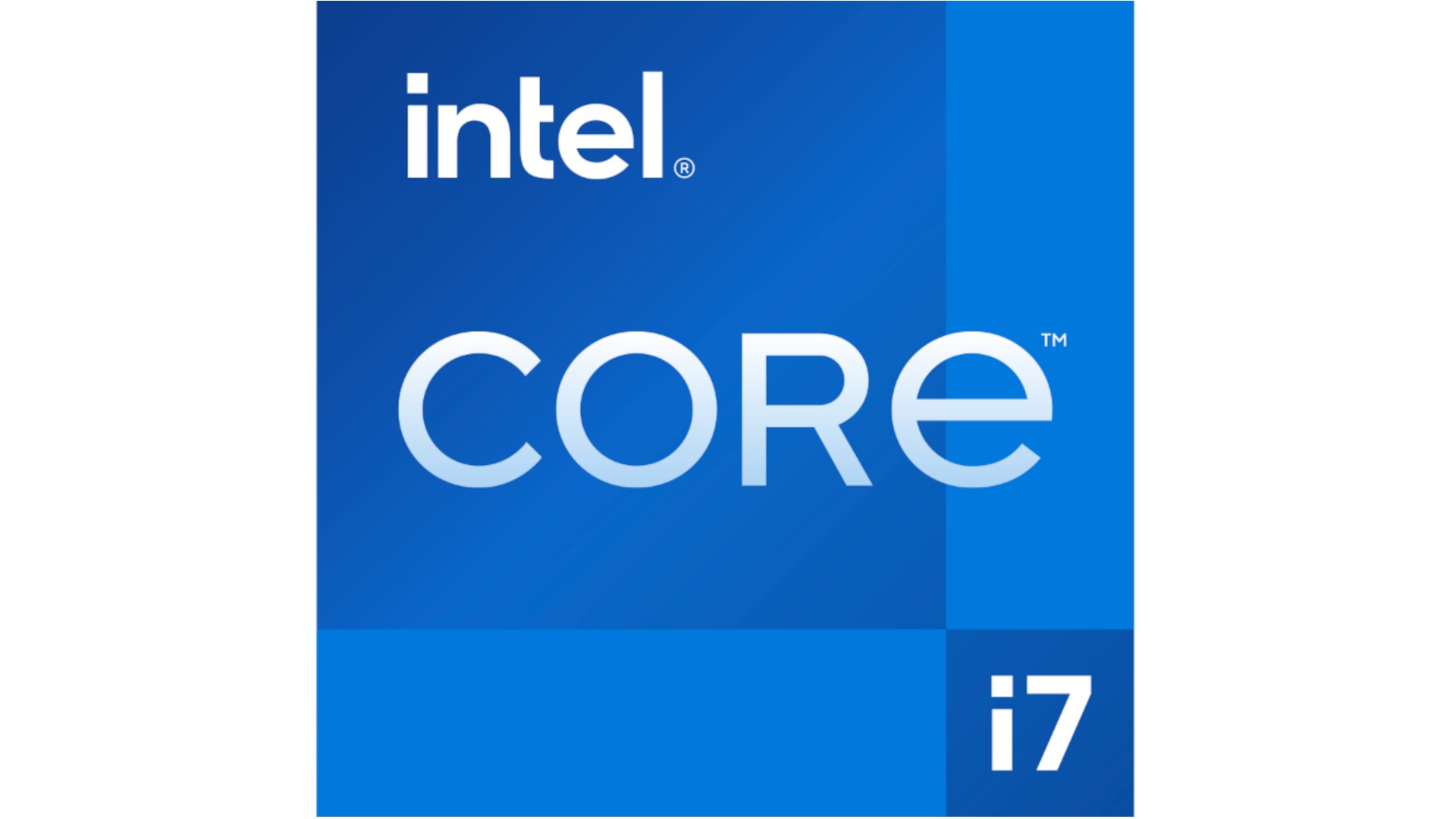With 13th Gen Core processors, formerly known as Raptor Lake, Team Blue is on a roll. The Big StickTM Core i9-13900K has established itself as a skilled multi-core performer with best-in-class gaming capabilities. The Core i5-13600K, which is now our favorite CPU, offers great speed at a competitive price. Application performance is on par with Core i9 from that generation, making it powerful enough to defeat any 12th Gen Core CPU in gaming.
Only a Raptor Lake i7 is still lacking. The $409 16-core, 24-thread Intel Core i7 13700K answers that call. Before we reveal benchmark results, here is all you need to know about the 13th Gen Core from an architectural and implementation standpoint. Continue reading to find out if it compares to the other two stablemates.
Intel Core i7 13700K Specifications
The $409 13th-Gen Intel Core i7 13700K sits in the middle of Intel’s Raptor Lake product lineup (or at least it will as of late October 2022). It offers the majority of the gaming performance of its $589 market-leading competitor, the Core i9-13900K, as well as more than enough power for the majority of users’ productivity workloads, all for $180 less. It also significantly surpasses the rival AMD Ryzen 7000 processor, making it one of the best CPUs for gaming and the leader in our hierarchy of CPU benchmarks.
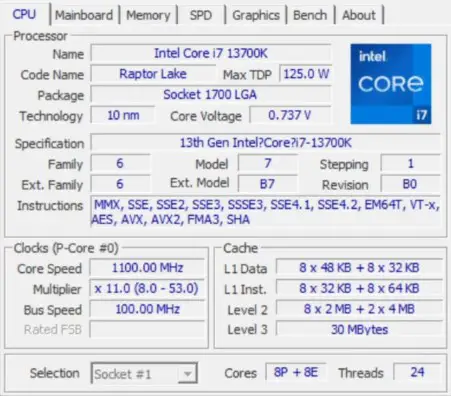
With the 13th Gen Core “Raptor Lake” series, Intel increased CPU core counts, but only by including more E-cores. The P-core numbers are unchanged from generation to generation, despite an improvement in performance for the P-cores themselves. The Core i5-13600K has a 6P+8E configuration, while the top Core i9-13900K has 8 P-cores and 16 E-cores (8P+16E).
With an 8P+8E configuration that is similar to the i9-12900 K’s, the new Core i7-13700K in this evaluation tries to find a middle ground. Contrary to popular belief, Intel is not continuing its strategy for the Core i9-9900K and Core i7-10700K processors (which were functionally the same chip). The Intel Core i713700K is physically different from the i9-12900K.
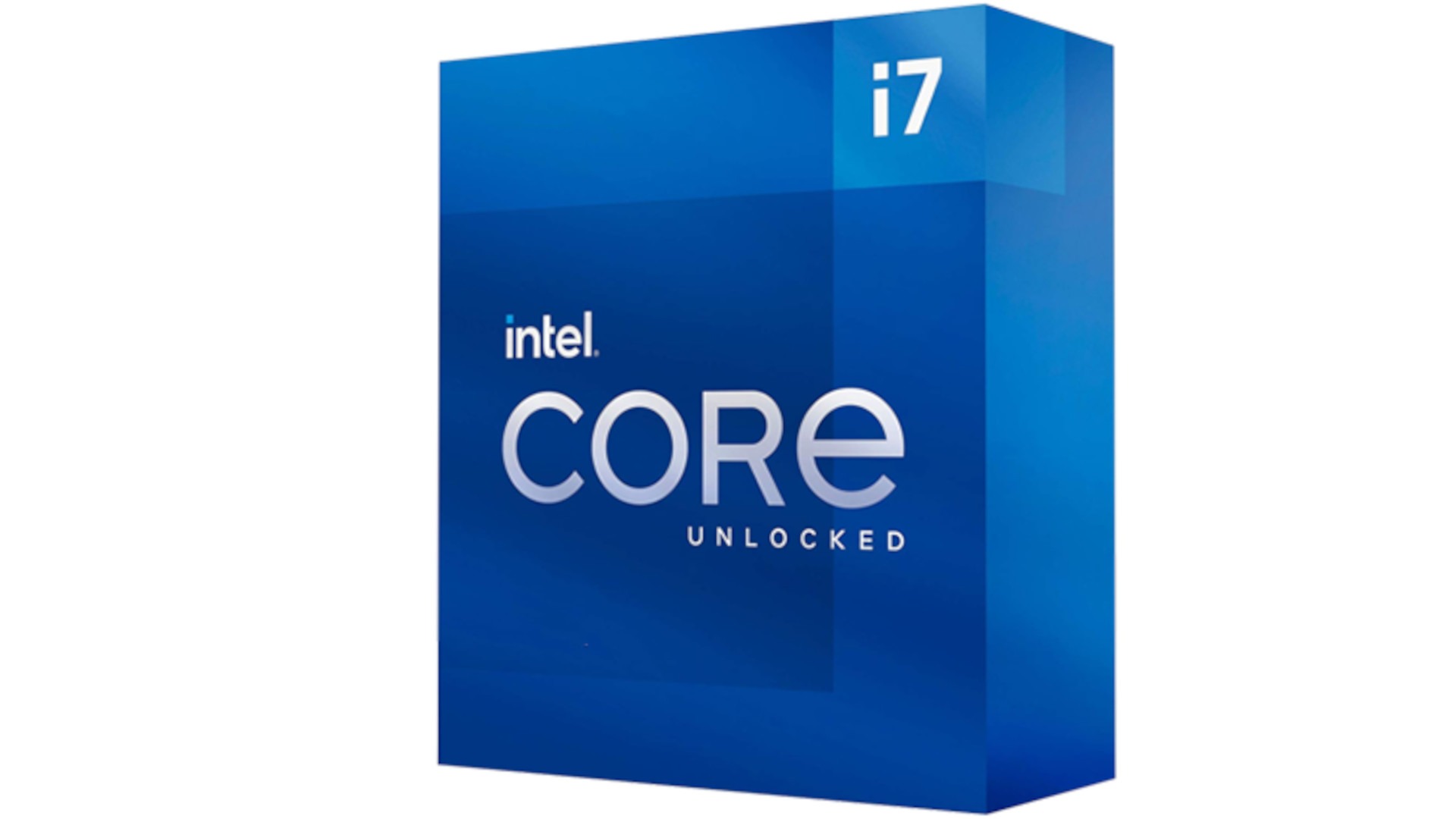
New-generation “Raptor Cove” P-cores make up each of the i7-13700 eight K’s P-cores, which have larger 2 MB dedicated L2 caches (compared to 1.25 MB on “Golden Cove” P-cores), whereas each of the two “Gracemont” E-core clusters has 4 MB of shared L2 cache for its four E-cores (an increase from 2 MB per cluster on “Alder Lake”).
The 30 MB of L3 cache shared by the eight P-core and two E-core clusters now has a new inclusive/non-inclusive cache partitioning mode, and the i7-13700K has faster clock speeds overall than the i9-12900K. Both the P-core and E-core L2 cache hardware prefetchers have been updated. The E-cores have a base frequency of 2.50 GHz and a boost frequency of 4.20 GHz, while the P-cores have a base frequency of 3.40 GHz and a boost frequency of 5.40 GHz. These clock rates are both higher than those of the i9-12900K.
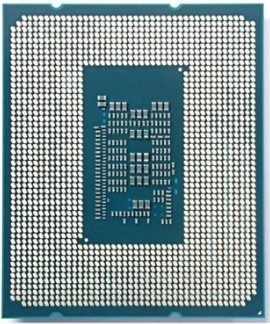
Two additional P-cores are available for only $90 more than the i5-13600K (6P+8E), whereas the Core i9-13900K costs $180 more but only adds two E-core clusters (8 more E-cores) and slightly faster clock rates. Intel was able to separate the i7-13700K from the “Raptor Lake” hardware by simply disabling two of the four E-core clusters and lowering the L3 cache from 36 MB to 30 MB. If you know you don’t need integrated graphics, choosing the Core i7-13700KF at $385 will save you $25.

Intel Core i7 13700K Essential information
| Product Collection | 13th Generation Intel® Core™ i7 Processors |
| Code Name | Products formerly Raptor Lake |
| Vertical Segment | Desktop |
| Processor Number | i7-13700K |
| Status | Launched |
| Launch Date | Q4’22 |
| Lithography | Intel 7 |
| Recommended Customer Price | $409.00 – $419.00 |
| Use Conditions | PC/Client/Tablet, Workstation |
Intel Core i7 13700K Specs
| Total Cores | 16 |
| # of Performance-cores | 8 |
| # of Efficient-cores | 8 |
| Total Threads | 24 |
| Max Turbo Frequency | 5.40 GHz |
| Intel® Turbo Boost Max Technology 3.0 Frequency | 5.40 GHz |
| Performance-core Max Turbo Frequency | 5.30 GHz |
| Efficient-core Max Turbo Frequency | 4.20 GHz |
| Performance-core Base Frequency | 3.40 GHz |
| Efficient-core Base Frequency | 2.50 GHz |
| Cache | 30 MB Intel® Smart Cache |
| Total L2 Cache | 24 MB |
| Processor Base Power | 125 W |
| Maximum Turbo Power | 253 W |
Intel Core i7 13700K Performance & Tests
The geometric means of our gaming tests at 1080p and 1440p are shown here. Although a different combination of games might produce slightly different results (especially with the Ryzen 7 5800X3D), this still serves as a reliable general measure of gaming performance. To minimize GPU-imposed bottlenecks as much as possible, we’re testing on an Nvidia GeForce RTX 4090, and differences across test participants will decrease with less powerful cards or with higher resolutions and fidelity. Below are further game-by-game analyses.
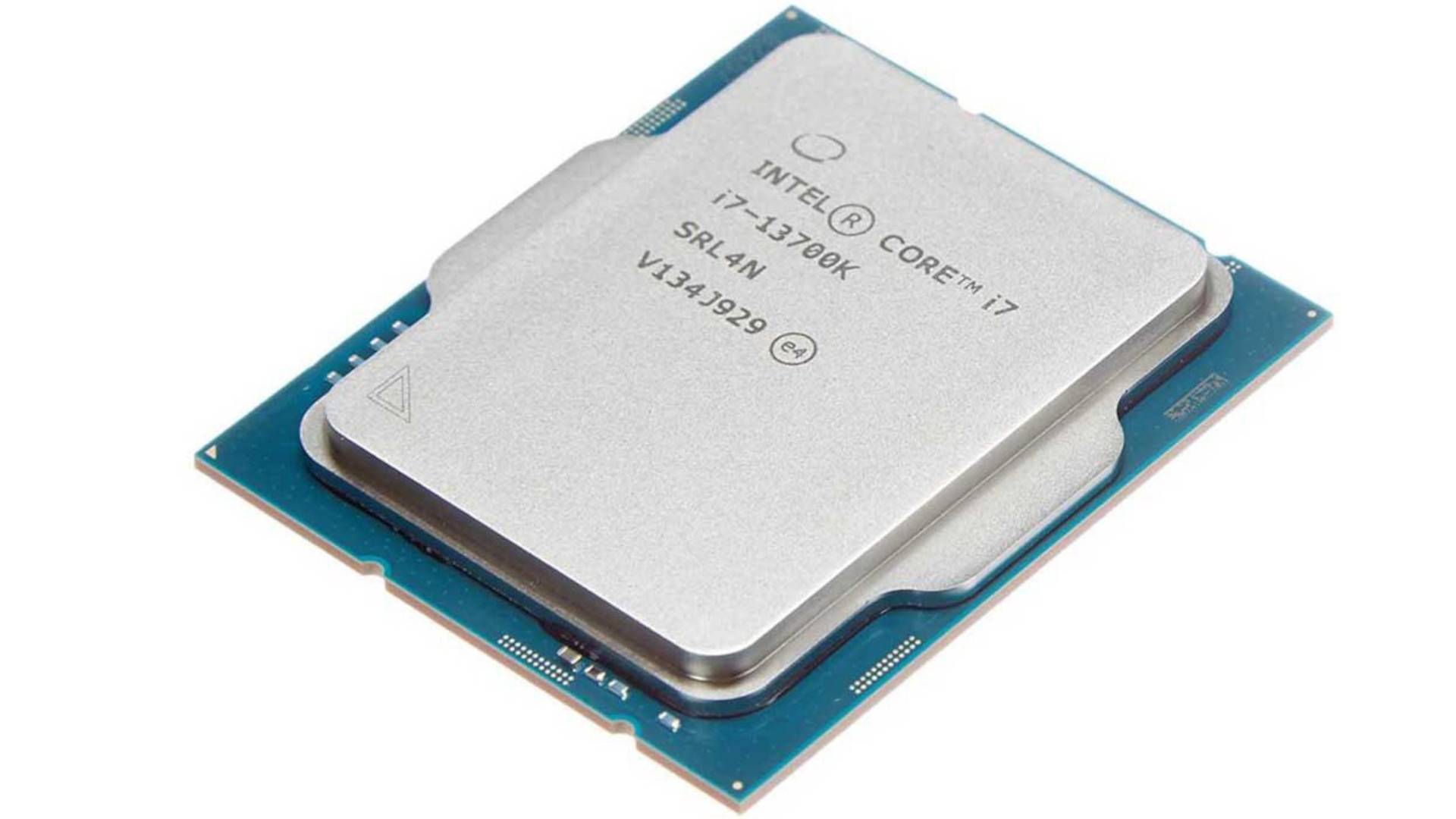
The $409 Intel Core i7 13700K overshadows the $589 Core i9-13900K if you don’t need the absolute greatest performance for intensive productivity work and games. Overall, the gaming performance of the 13700K is 95% that of the 13900K, but it costs $180 less. Even better, by overclocking the Core i7-13700K, you may achieve performance levels for single-thread and gaming that are nearly identical to those of the Core i9-13900K.
Additionally, the 13700K is 18.8% faster than the Core i7-12700K from the previous generation, which is remarkable given that both chips use the same basic chip microarchitectures.
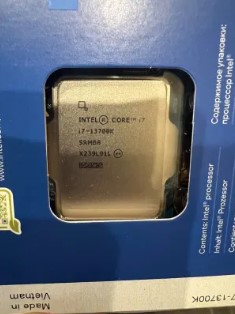
The Ryzen 7 5800X3D is by far the fastest AMD gaming chip, although performance can be inconsistent because of its additional 96MB of L3 cache, which does not speed up all games. The winner between the Intel Core i7 13700 and the 5800X3D will therefore change depending on the test suites used. In our test suite, the Core i7-13700K is tied with the 5800X3D at standard settings but jumps ahead by 6% after overclocking.
There are a few limitations with the Ryzen 7 5800X3D, though. The Intel Core i7 13700K, for instance, offers a balanced performance profile over the whole game library. In contrast, the 5800X3D makes significant revenues from a small number of exceptionally large leads (like Microsoft Flight Simulator 2021 and Red Dead Redemption 2). Additionally, if you choose the Zen 3-powered Ryzen 7 5800X3D, you’ll have to tolerate significantly worse performance in almost all other categories of productivity applications, as we can see in our application testing section.
The 13700K is about 9% quicker in both stock and overclocked versions than the more recent $399 Ryzen 7 7700X. In actuality, even after overclocking, none of the Ryzen 7000 CPUs can compete with the Intel Core i7 13700K in gaming.
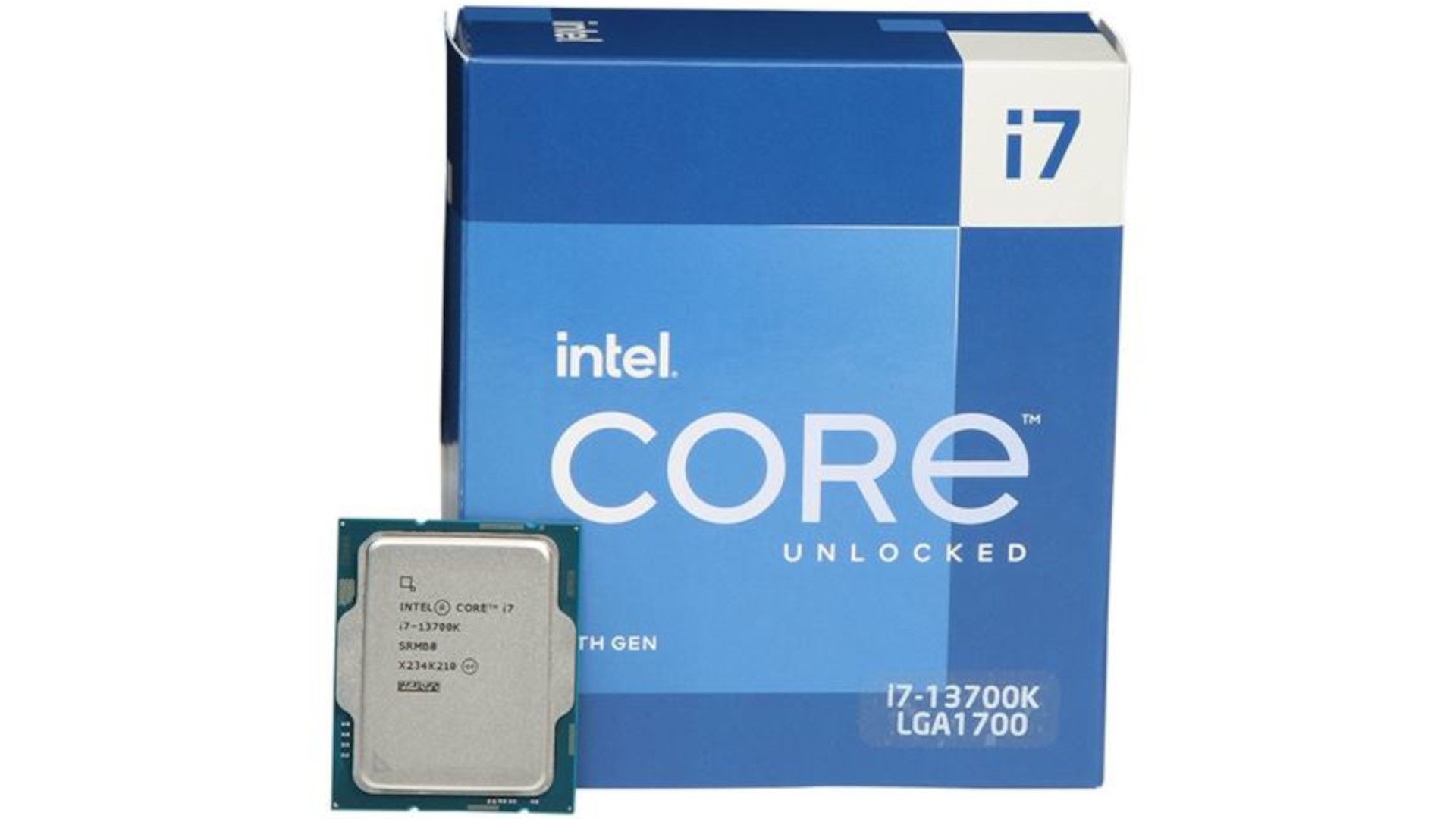
Although the deltas in these charts can be small, huge deltas in particular games, as we see with the 5800X3D, have an impact on the overall measurements. In a few Ryzen 7000 CPU game tests, dual-chiplet versions have lagged behind single-chiplet ones, which also affects these measurements.
Intel Core i7 13700K Conclusion
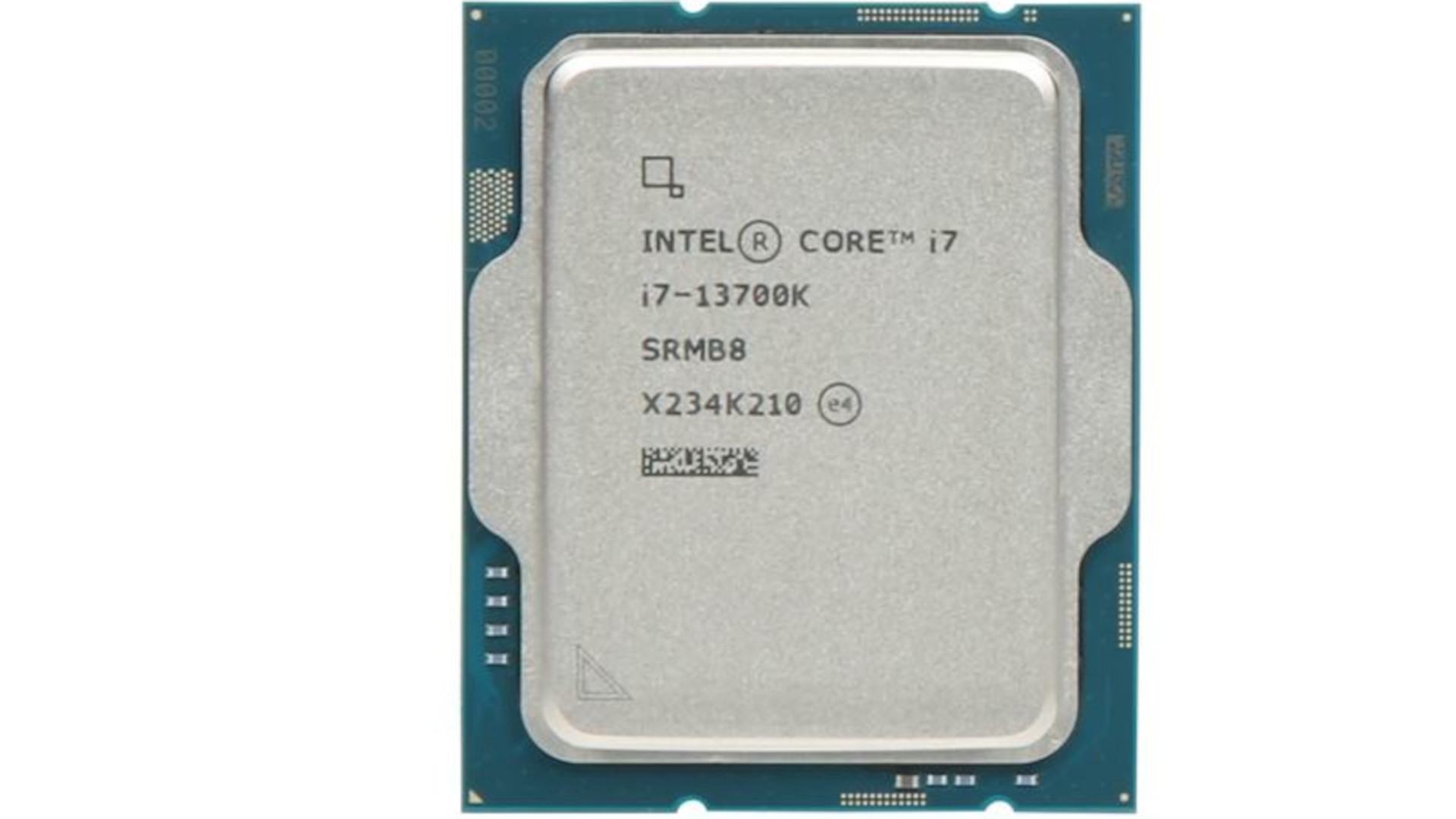
Although the Intel Core i7 13700K uses more energy than the AMD Ryzen 7 7700X, it offers a noticeable performance boost. When we factor in the cost of motherboards and memory, the Core i7-13700 price-to-performance K’s advantage is even more obvious. In contrast to AMD’s AM5 environment, which requires DDR5 memory, Intel preserved compatibility with DDR4 memory, opening the door for far less expensive memory and motherboards.
For those looking for the best deal, Intel claims that using a 600-series motherboard from a previous generation won’t result in a significant performance loss as long as it has adequate power delivery.
The 13700K requires more capable coolers than we are used to using for Core i7 processors, even though its cooling requirements are not quite as severe as those of the 13900K. AMD’s processors are more energy-efficient and use less power, but they operate at higher temperatures (95C is to be expected) and now need up to 230W of electricity to match the threaded performance of the 13700K.
As a result, the disparities are less obvious than they once were. Let’s say you want a high-performance processor with greater value for demanding tasks like gaming. The Intel Core i7 13700K is a product to recommend and give serious thought to in that situation because it is powerful enough to compete with AMD’s Ryzen 9 in productivity apps and is also nimble enough to match Core i9 gaming performance at Core i7 pricing.
Is the Intel Core i7 13700K worth it?
With 16 cores and 24 threads, the Intel Core i7 13700K is a powerful processor for both gaming and work. It supports DDR4 and DDR5 memory and has a base rate of 3.4 GHz and a peak clock of 5.4 GHz. If your motherboard and cooling system are suitable, it can also be unlocked for overclocking.
Reviews claim that the AMD Ryzen 7 7700X is either surpassed or tied by the Intel Core i7 13700K, making it one of the best processors in its price category. Additionally, it is a major upgrade over the Core i7 12700K of the previous generation, which had fewer cores and slower clock speeds.
The Intel Core i7 13700K does, however, come with a few disadvantages, including increased heat output, higher power consumption, and a higher price than its predecessor. If you want to upgrade from an older Intel CPU, you will also need a new motherboard because it requires a new LGA 1700 socket.
The Intel Core i7 13700K’s value ultimately depends on your needs for performance, your budget, and your existing system. The Intel Core i7 13700K is a fantastic option if you’re searching for a strong processor that can easily run the majority of games and apps and you don’t mind updating your motherboard and paying a little bit extra. However, you might want to wait for a price reduction or a better bargain if you have a limited budget or currently own a good processor that satisfies your needs.
Is Intel Core i7 13700K good for gaming?
For gaming, the Intel Core i7 13700K is a great CPU because it performs well in most games at 1080p and 1440p resolutions. Reviews claim that in the majority of benchmarks, the AMD Ryzen 7 7700X, another well-liked gaming CPU, is beaten or tied by the Intel Core i7 13700K. In addition, compared to the Core i9 12900K of the previous generation, it features more cores, a faster clock, and a bigger cache.
The Intel Core i7 13700K does, however, come with a few disadvantages, including increased heat output, higher power consumption, and a higher price than its predecessor. If you want to upgrade from an older Intel CPU, you will also need a new motherboard because it requires a new LGA 1700 socket.
The Intel Core i7 13700K’s suitability for gaming ultimately comes down to your needs in terms of performance, budget, and existing system. The Intel Core i7 13700K is a great option if you’re searching for a powerful CPU that can easily handle any game or application and you don’t mind updating your motherboard and paying a little bit extra. However, you might want to wait for a price reduction or a better bargain if you have a limited budget or currently own a good processor that satisfies your needs.
Can you overclock the Intel Core i7 13700K?
Since the Intel Core i7 13700K is an unlocked processor with manual frequency and voltage adjustments supported, the answer is definitely yes: you can overclock it. But in order to overclock, you’ll need a good cooling system, a suitable motherboard, and some technical know-how. In addition, overclocking can raise your system’s noise, heat production, and power consumption. If done improperly, it can also void your warranty or break your hardware.
You might be able to attain a steady overclock of 5.8 GHz or more on all P-Cores, which can greatly improve the performance of your games and applications, depending on your cooling system and CPU quality. Overclocking is not always possible and can vary from system to system, therefore you should always exercise caution and keep a close eye on your system.
The Intel K-series CPU, the Intel Core i7 13700K, is probably unlocked and capable of overclocking. Generally speaking, overclocking an unlocked Intel processor involves gaining access to your motherboard’s BIOS or UEFI settings, modifying variables like the voltages, base clock (BCLK), and CPU multiplier, and stress-testing the system to make sure it is stable.
Always remember that overclocking can violate the warranty on your CPU and that it should only be done carefully to prevent instability or damage. Make sure you have enough cooling solutions on hand, and keep an eye on the temperature to make sure it stays within safe bounds.
What temperature should an Intel Core i7 13700K run at?
A strong processor that can operate at high temperatures under intense load is the Intel Core i7 13700K. The published specs state that the CPU’s maximum temperature (TJUNCTION) is 100°C. It is not necessary for the CPU to operate at this temperature all the time, though, as it could shorten its life and performance.
The cooling system, outside temperature, overclocking settings, workload, and other variables all affect the ideal temperature range for the Intel Core i7 13700K. Lower temperatures often help the CPU because they can avoid thermal throttling and increase stability. Less heat, noise, and money may also be needed for the cooling system at lower temperatures.
The Intel Core i7 13700K can operate at 60–70°C on average and 80–85°C at its highest while playing demanding games and utilizing a good liquid cooling system. As long as the temperatures stay below the TJUNCTION limit, these are regarded as normal and safe for the CPU. But, if you wish to overclock the CPU, you might require additional voltage and a better cooling system, which can raise the temperature noticeably.
How much power does the Intel Core i7 13700K draw?
Intel Core i7 13700K base power (PBP) of 125W. Nevertheless, this figure does not accurately represent the CPU’s real power usage over a range of workloads and overclocking configurations. The greatest power that the CPU can draw when increasing its frequency is known as the maximum turbo power, and it is 253W. This is more than the 241W maximum turbo power of the previous generation Core i7 12700K.
The motherboard, the workload, the ambient temperature, the cooling system, the memory, and the motherboard all affect how much power the Intel Core i7 13700K actually uses. Based on certain reports, the Intel Core i7 13700K may draw between 60–70 W on average and 80–85 W at its highest while playing demanding games and utilizing a competent liquid cooling system. Since these figures are measured at the wall, the system’s total power consumption—rather than simply the CPU’s—is included.
Intel Core i7 13700K
-
Performance - 96%96%
-
Price - 97%97%
-
Value - 97%97%

